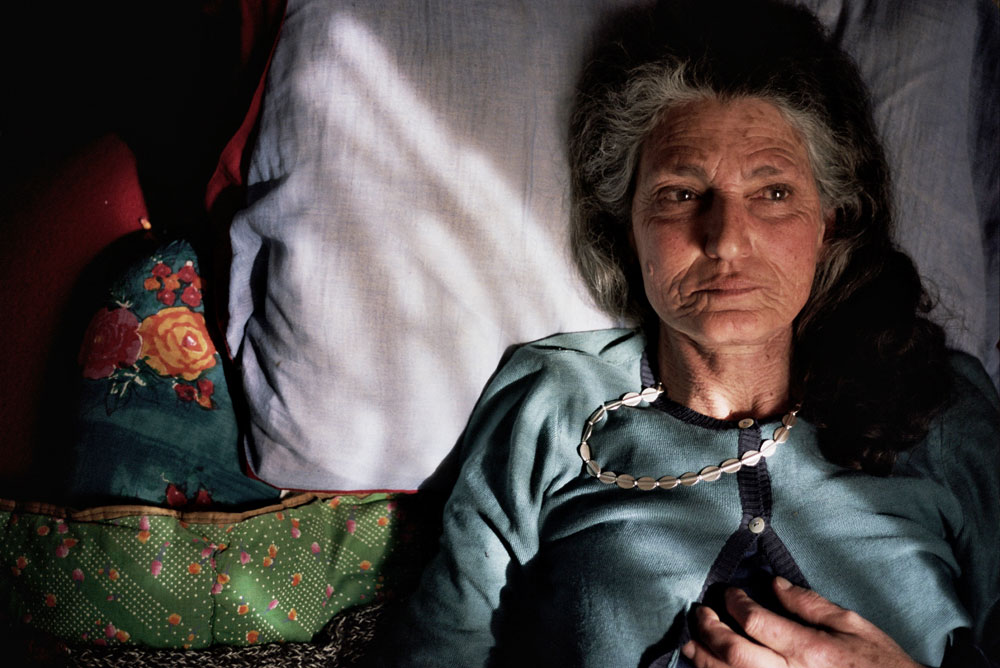“I’ve always labored under the idea no one took a photograph of me…the real me isn’t photographable,” Benedetta Barzini tells her son Beniamino Barrese in “The Disappearance of My Mother,” slightly contemptuous that he too is filming her. Once one of the world’s most famous supermodels, Barzini’s looks haven’t faded with eyes that still command your attention and regal grey hair, but any affection she had for the old days has, now seeing her professional career as having stolen her ability to be seen as a person. Ben attempts to rectify this early in the film, setting up a casting session where a host of women audition to play her in her youth with all ideally suited for the part since she has so many different sides to her, yet he finds himself retreating back to the original material he shot of her, just before her death, to attempt to capture what others could not, despite being one of the most photographed women in the world.
There’s clear love and affection in the way Ben points the camera at his mother, but nonetheless from her reaction, he might as well be wielding a knife in her direction, feeling trapped and having to present herself in terms that he sets rather than her own, an extension of a life lived on other people’s terms that to his great credit, Ben is conscious enough of to convey in “The Disappearance of My Mother,” which would be enjoyable enough as a portrait of a fascinating person, but finds another gear in exploring the notion that being photographed really can steal one’s soul. It is clear that If anyone could wage a fight against it, it’s Benedetta, who devotes the second part of her life to teaching feminist theory in her native Milan. She is still recognized on the subway and receives honorary awards from the City Council acknowledging her celebrity, but she doesn’t miss an opportunity to complain how this gets under her skin, rueing the day she was discovered by a photographer in the 1960s on the street who forwarded her picture to Vogue editor Diana Vreeland.
Ben presents his mother’s recollections as fragments, interspersing his present-day casting call, in an shrewd reflection of how he’s processing his own grief over her loss and coming to understand what a complicated woman she was. Although he includes bits of footage from her days of partying at Andy Warhol’s Factory and glimpses of magazine cover shoots she was a part of, he keeps the film contained largely to his own experience of her without overtly personalizing it, presenting the past in the way you might hear one make a reference to something in passing and allowing the discovery of her take place at the same time you imagine he experienced it. The effect of this direct translation of memory is invigorating, but also somewhat devastating since as try as he might to allow Benedetta to finally to have others see her as she sees herself, he contends with finding himself in the still unfortunate position of serving as a filter.
This is the greatest tension in the movie, in spite of the many wonderfully contentious moments there are between a cantankerous Benedetta and Ben, whose gentle direction can nonetheless feel harsh to his mother, and it makes the few scenes in which Benedetta actually loses sight of the camera especially rewarding. But more so is giving Benedetta the platform to challenge the image that has been previously established for her, with the film evolving into as a provocative rumination on how history is shaped by decisions and not always fact and that even the most well-intentioned interpretations can be fallible. Acknowledging that is the first step “The Disappearance of My Mother” takes towards doing justice to a remarkable life in a film that even if it reveals only a fraction of Benedetta’s true self is powerful to behold.
“The Disappearance of My Mother” will screen at Sundance on January 26th at 9 pm at the Tower Theatre in Salt Lake City and in Park City on January 27th at 6:30 pm at the Redstone Cinema, January 30th at 2:30 pm at the Prospector Square Theatre and February 2nd at 1 pm at the Holiday Village Cinema.




